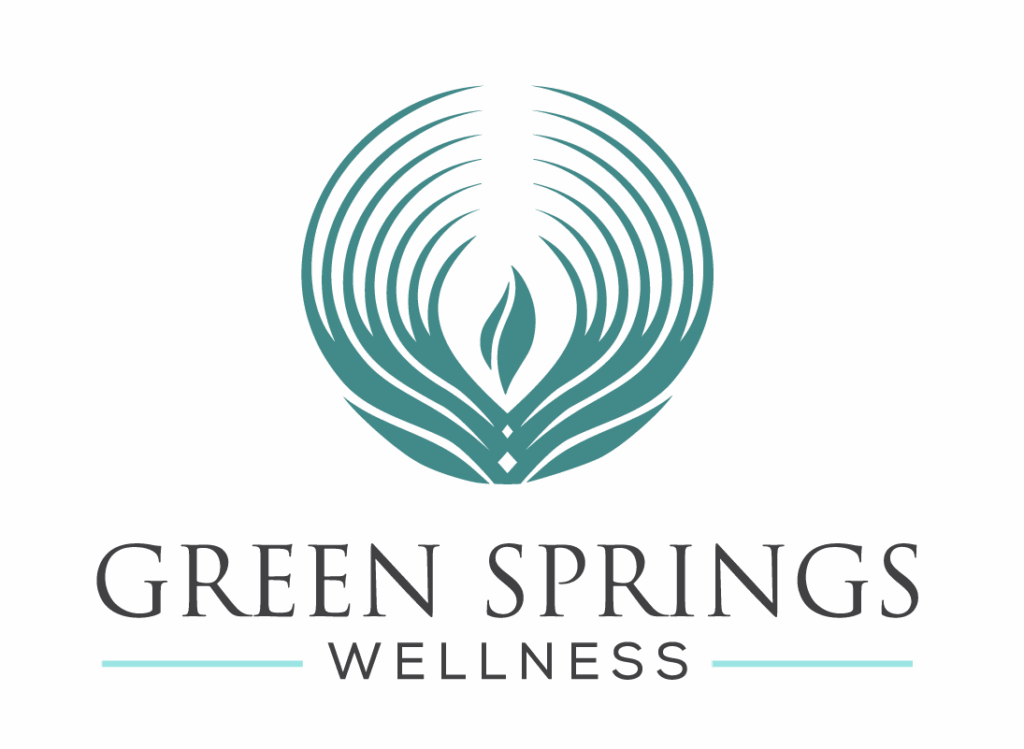Cognitive Behavioral Therapy (CBT) in Hillsborough, NJ
Cognitive Behavioral Therapy (CBT) at Green Springs Wellness
At Green Springs Wellness, we recognize that true healing comes from addressing the underlying patterns that shape our thoughts, emotions, and behaviors. Cognitive Behavioral Therapy (CBT) is one of the most effective and evidence-based tools we use to support clients on their journey toward mental, emotional, and behavioral wellness. As the “gold standard” of psychotherapy, CBT has helped countless individuals reshape their lives—and we’re honored to bring its benefits to our community.



What Is Cognitive Behavioral Therapy?
Developed in the 1960s by psychiatrist Dr. Aaron Beck, CBT is rooted in the understanding that how we think, how we feel, and how we behave are deeply interconnected. At Green Springs Wellness, we use CBT to help individuals identify and reframe negative thought patterns, leading to healthier choices and improved quality of life.
Whether you’re working through a mental health diagnosis, struggling with addiction, or simply feeling stuck in unhelpful patterns, CBT can provide clarity, structure, and hope.
What Can CBT Help With?
CBT is a versatile and adaptable therapy that has proven effective in treating a wide range of mental and behavioral health concerns. At Green Springs Wellness, we use CBT to address:
- Anxiety disorders (including generalized anxiety, panic disorder, and phobias)
- Depression
- Substance use and addiction
- Bipolar disorder
- Schizophrenia
- Obsessive-compulsive disorder (OCD)
- Eating disorders
- Sleep disturbances
- Behavioral addictions (such as gambling)
- Personality disorders
- Chronic stress and anger management
- Somatic disorders (like chronic pain and health anxiety)
CBT can also support individuals dealing with complex life transitions or traumatic experiences, often in combination with other therapeutic approaches.



How CBT Works at Green Springs Wellness
CBT sessions at Green Springs Wellness are structured, goal-oriented, and tailored to each client’s unique needs. In therapy, we focus on three key areas:
We help clients recognize their immediate, often unconscious interpretations of events—called automatic thoughts. These thoughts can be overly negative, exaggerated, or distorted, and they shape how we feel and respond to the world.
Example: If someone doesn’t return your greeting, an automatic thought might be, “They must be mad at me.” CBT helps reframe this into something more balanced, such as, “Maybe they were distracted or didn’t see me.”
Clients learn to identify common thinking errors like:
- All-or-nothing thinking
- Catastrophizing
- Mind reading
- Overgeneralization
- Should statements
These patterns can amplify distress and limit personal growth. Our therapists guide clients in challenging and replacing them with healthier, reality-based thoughts.
CBT helps uncover the deeply held beliefs that influence behavior and self-image. These may include feelings of unworthiness, fear of rejection, or the need to always please others. By examining these beliefs, we work toward lasting internal change.
At Green Springs Wellness, we incorporate a variety of CBT-based approaches to suit the individual:
- Dialectical Behavior Therapy (DBT): Ideal for those who struggle with intense emotions, DBT teaches mindfulness, emotion regulation, and distress tolerance.
- Rational Emotive Behavior Therapy (REBT): Helps individuals challenge irrational beliefs and replace them with more constructive thoughts.
- Acceptance and Commitment Therapy (ACT): Encourages clients to accept painful emotions while committing to behavior that aligns with their values.
What to Expect in CBT Sessions
Your CBT journey at Green Springs Wellness begins with building a trusting relationship with your therapist. Together, you will:
- Identify personal goals—such as reducing anxiety, changing a behavior, or improving relationships.
- Develop a personalized treatment plan that uses a variety of cognitive and behavioral techniques.
- Learn practical tools to challenge negative thoughts, manage emotional triggers, and take positive action.
Each session includes reflection, skill-building, and homework assignments—like keeping a thought journal—to reinforce progress outside of the therapy room.
Stories of Recovery
"I came to Green Springs Wellness Center during one of the hardest times in my life. The staff treated me with compassion, patience, and genuine care. The therapists were incredible—helping me understand my mental health and teaching me tools I still use every day. The environment is peaceful and private, which made it easy to open up and focus on myself. I can honestly say Green Springs gave me a new outlook on life."
"From my very first call, I knew Green Springs was different. The intake coordinator made the process easy and stress-free, and once I started my program, every therapist and staff member made me feel valued and heard. They truly go above and beyond to meet each client’s needs. I’ve made more progress here in a few months than I did in years of other programs."
"Green Springs Wellness Center offers the perfect balance of clinical excellence and human connection. The facility is beautiful and calming, and every group and session felt meaningful. They didn’t just help me manage my symptoms—they helped me rebuild my confidence and reconnect with who I am. I’d recommend Green Springs to anyone looking for real, lasting healing in a supportive setting."
Benefits of CBT at Green Springs Wellness
CBT is one of the most researched and effective therapies for mental health and substance use.
Many clients see meaningful improvement in 12 to 20 sessions.
CBT focuses on building skills for long-term success, not dependency on therapy.
Whether you’re dealing with a dual diagnosis, chronic stress, or life transitions, CBT can be tailored to meet you where you are.
At Green Springs Wellness, CBT may be integrated with other therapies and wellness services to provide holistic care.



Mindfulness Skills “Breaking the Cycle”
How Mindfulness and CBT Can be used to reduce symptoms of Anxiety and Depression
Anxiety and depression are two distinct but often overlapping mental health conditions, each affecting a person’s thoughts and emotions in different ways. Anxiety primarily revolves around a fear or worry about the future—what might happen, what could go wrong, or how one will cope with upcoming events. It often involves an excessive sense of unease or dread about the unknown, making it difficult to stay present or relaxed. Everyone experiences anxiety from time to time, especially when faced with major life events like exams, interviews, or big decisions. However, it becomes a disorder when these feelings are persistent, overwhelming, and unmanageable, interfering with daily life and functioning.
Depression is more about being weighed down by the past. People with depression often find themselves stuck in negative thoughts, ruminating over past mistakes, missed opportunities, or perceived failures. This mental preoccupation can create a sense of hopelessness or helplessness, as though there is no way to move forward or make things better. While anxiety keeps the mind focused on what could go wrong in the future, depression pulls it back to what has already gone wrong in the past. This constant focus on the past or future can create a cycle of distress that feels impossible to break without support or intervention.
In our experience, Cognitive Behavioral Therapy (CBT) can be effective in managing both anxiety and depression, but it’s often most helpful when combined with other approaches. While CBT helps individuals reframe negative thinking patterns and address unhelpful behaviors, I find that mindfulness techniques can provide an essential complement. Mindfulness allows individuals to stay grounded in the present moment, reducing the tendency to either dwell on the past (as in depression) or obsess over future uncertainties (as in anxiety). Together, these modalities offer a more holistic approach, helping to calm the mind and regain a sense of balance, making the therapeutic process more manageable and sustainable.
Mindfulness is a therapeutic modality that focuses on cultivating awareness and presence in the moment, without judgment. It’s about paying attention to your thoughts, emotions, and physical sensations as they arise, without getting caught up in them or reacting automatically. The core of mindfulness is learning to observe your experiences as they happen, with curiosity and acceptance, rather than trying to change or suppress them. This non-reactive awareness helps you develop a healthier relationship with your thoughts and feelings, allowing you to respond more thoughtfully and less impulsively.
The practice of mindfulness often involves simple techniques like focused breathing, body scans, or guided meditation. One common exercise is to focus on the breath—simply observing the inhale and exhale without trying to control it. When the mind inevitably drifts to other thoughts, mindfulness teaches you to gently bring your attention back to the breath, without criticism or frustration. Over time, this helps train the mind to stay more centered and calm, even in the face of stress or difficult emotions. It’s about accepting whatever comes up, whether positive or negative, without getting overly attached to it or avoiding it.
Mindfulness is particularly effective in managing anxiety and depression because it allows individuals to break free from the cycle of rumination and worry. In anxiety, the mind tends to leap into the future, imagining worst-case scenarios, while in depression, it becomes fixated on the past. By staying present, mindfulness helps to interrupt these patterns, grounding you in the reality of the current moment. This can reduce the power of negative thoughts and emotions, giving you space to make more deliberate, conscious choices about how to respond, rather than being swept away by automatic reactions. Mindfulness, when combined with other therapies like CBT, can be a powerful tool in developing emotional resilience and improving mental well-being.
How to Reach Us
Location
390 Amwell Rd, Hillsborough, NJ 08844






